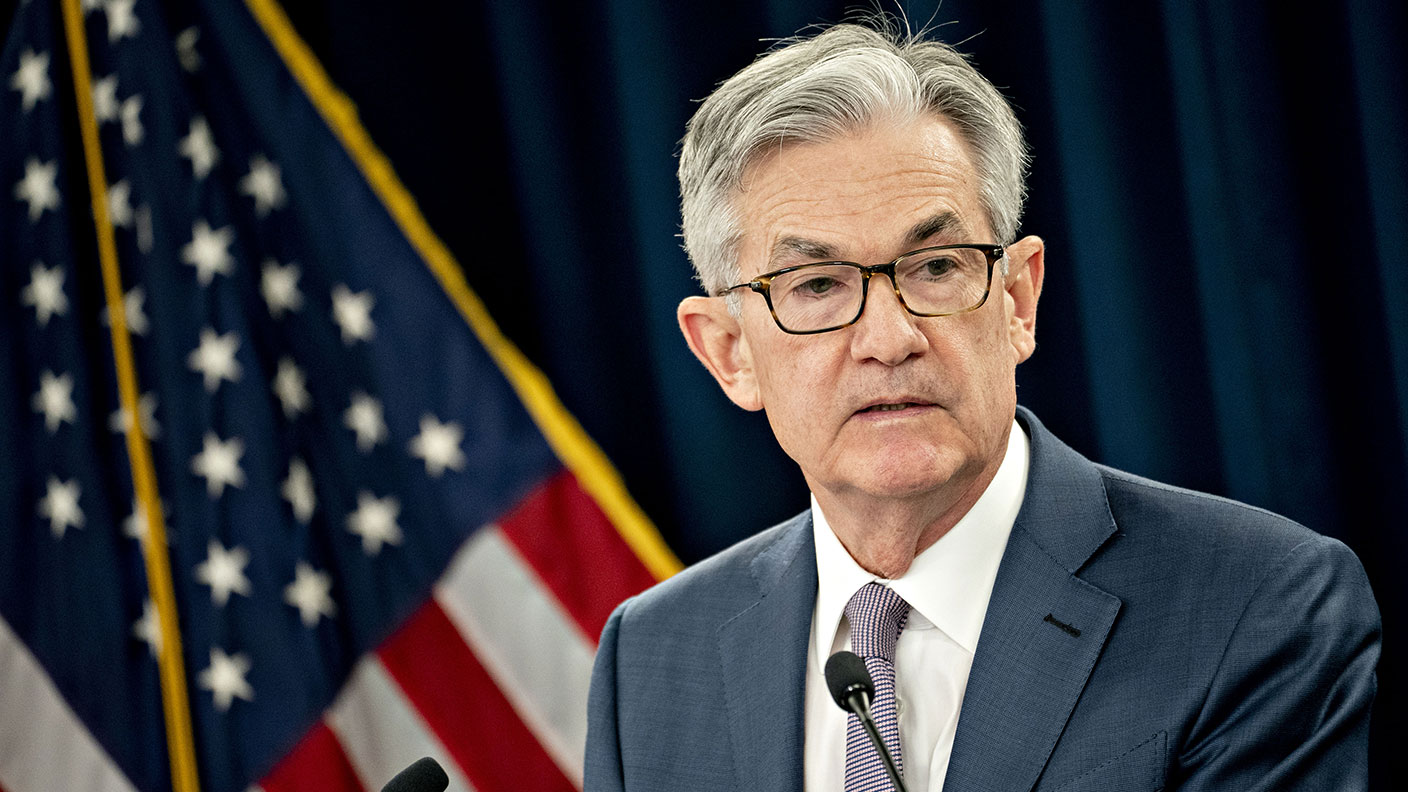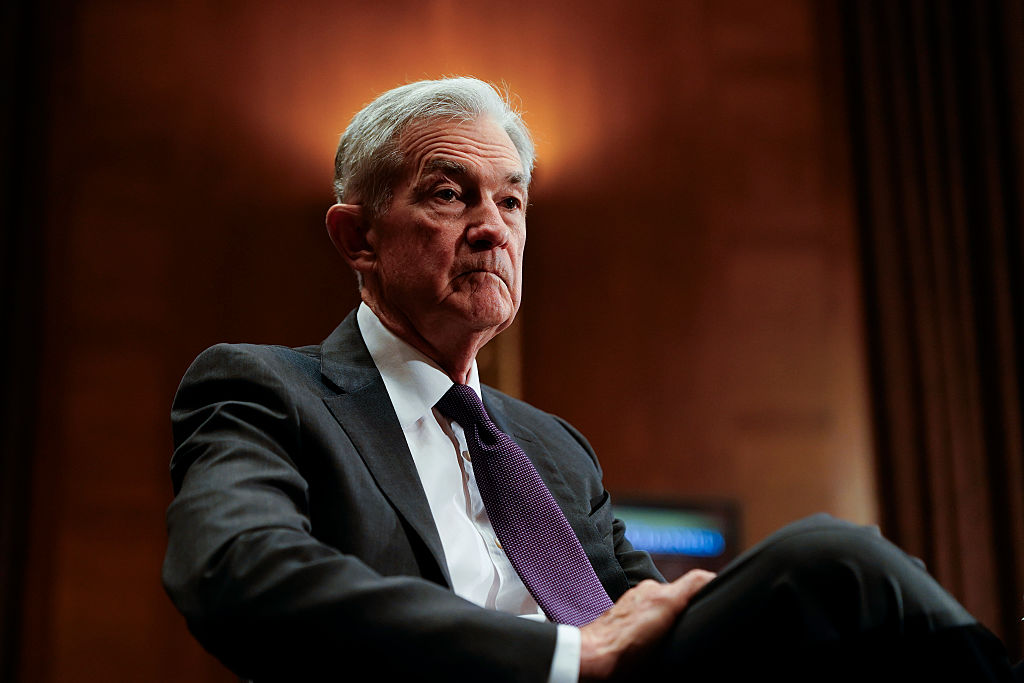Will Jerome Powell lay out a tapering timetable today? Probably not
Investors will be looking for clues on the future of US monetary policy at the Jackson Hole Event today. John Stepek breaks down what investors can expect.


Get the latest financial news, insights and expert analysis from our award-winning MoneyWeek team, to help you understand what really matters when it comes to your finances.
You are now subscribed
Your newsletter sign-up was successful
Want to add more newsletters?

Twice daily
MoneyWeek
Get the latest financial news, insights and expert analysis from our award-winning MoneyWeek team, to help you understand what really matters when it comes to your finances.

Four times a week
Look After My Bills
Sign up to our free money-saving newsletter, filled with the latest news and expert advice to help you find the best tips and deals for managing your bills. Start saving today!
Once a year, the world's central bankers have a big get-together in Jackson Hole, which is a resort town in Wyoming, near the Rocky Mountains.
They couldn't do it in person last year, obviously. And unfortunately for businesses in the area, they decided at the last minute to pull it this year too, due to the delta version of Covid.
But they'll be chinwagging remotely in any case.
MoneyWeek
Subscribe to MoneyWeek today and get your first six magazine issues absolutely FREE

Sign up to Money Morning
Don't miss the latest investment and personal finances news, market analysis, plus money-saving tips with our free twice-daily newsletter
Don't miss the latest investment and personal finances news, market analysis, plus money-saving tips with our free twice-daily newsletter
Everyone whose anyone in central banking will be there. But there's really only one man whose words matter.
That's Federal Reserve boss, Jerome Powell...
Jackson Hole and the Horribly Obvious Metaphor
There's an unavoidable economic analogy to be drawn from this year's Jackson Hole event turning virtual at the last minute. And as it's so obvious, I'm by no means the first writer to draw it. But I'm going to, anyway.
Back in May markets were starting to cool off on the re-opening trade. The economy was running hot, all the talk was of inflation, and investors were starting to get edgy about the idea that central banks might rein in monetary policy a bit.
In short, "tapering" – winding down quantitative easing, basically (we've a short video explainer here) – started to become a big concern.
That's when the Federal Reserve said that Jackson Hole would return to being an "in-person" event - all part of the grand re-opening.
In the months since, even as "taper" concerns have grown, the delta variant has also been chomping its merry way across the globe. In broadly vaccinated countries it has slowed things down.
In broadly unvaccinated countries – many of whom had successfully contained previous waves – it has caused a lot of disruption because even one case can shut down a whole area (Australia and New Zealand being obvious examples here).
So at the last minute, the Fed has made the whole thing virtual.
And really, this just encapsulates what markets are wondering about right now.
Will the strength of the recovery so far and the gains seen in the labour market in particular, persuade the Fed to stick with the idea that re-opening is continuing apace, and so it's probably time to think about stepping away from the money-printing button?
Or will the Fed decide that "delta" has thrown a new factor into the mix, and that it shouldn't be overly hasty on doing anything?
And today is the day that everyone is hoping to find out.
Why the market will be hanging on Jerome Powell's every word
Today's the day that markets hope Jerome Powell will spell out if and when the Fed is going to start tapering off its government bond buying, when he gives his speech to the Jackson Hole attendees.
Markets have been thinking that there might be an announcement at the September Fed meeting. Others think it might be pushed back to the November meeting. As for the taper itself, it might start by the end of the year. Or maybe not.
You'll note that none of this involves actually doing anything. This is all talk about the point at which certain things may or will be done. It's very much about managing market expectations rather than stopping the printing presses dead.
That's how sensitised markets have become to the steady flow of money.
You might well think - why does any of this stuff matter?
The short answer is that it doesn't really. If you are a long-term investor then today will be a potentially more noisy day than usual, but in the big scheme of things it'll represent a blip that you won't notice in six months' time, maybe even six weeks' time.
The more in-depth answer is that it's still useful to know what everyone is going on about and why today might (or might not) cause markets to move around a bit more than usual.
It's no secret that investors would prefer it if the Fed came down on the "let's wait and see side" of the ledger today. And history shows that you can usually rely on the Fed to be more "dovish" than markets fear.
The tricky thing today though is that markets are already pricing in quite a relaxed tone from the Fed. I think Powell would really have to push back quite hard against the idea that tapering is imminent in order to give US markets a boost from their current all-time high levels.
It's perfectly possible that he'll do that of course, in which case the US dollar would most likely go down and most other things go up. But he might also feel it's a bit premature to pre-empt the next Fed meeting.
On the other hand, if he's very aggressive and gives the sense that tapering is in the bag, you'd expect the dollar to go up and most things to go down. But I can't see that one happening either.
So I suspect he'll aim for a non-committal tone - one that won't scare markets but that won't have them piling back into inflation trades again quite yet.
On another note – It is odd that one man can have such market-moving power. It's jarring but true to say that the words Powell chooses to use will have far more impact on financial markets than whatever happens in Afghanistan today, for example.
But that's the system we have, so best to understand it and try to work around it.
We'll have more on all this in MoneyWeek magazine in the coming issues. Get your first six issues free here.
Get the latest financial news, insights and expert analysis from our award-winning MoneyWeek team, to help you understand what really matters when it comes to your finances.

-
 Should you buy an active ETF?
Should you buy an active ETF?ETFs are often mischaracterised as passive products, but they can be a convenient way to add active management to your portfolio
-
 Power up your pension before 5 April – easy ways to save before the tax year end
Power up your pension before 5 April – easy ways to save before the tax year endWith the end of the tax year looming, pension savers currently have a window to review and maximise what’s going into their retirement funds – we look at how
-
 How a dovish Federal Reserve could affect you
How a dovish Federal Reserve could affect youTrump’s pick for the US Federal Reserve is not so much of a yes-man as his rival, but interest rates will still come down quickly, says Cris Sholto Heaton
-
 New Federal Reserve chair Kevin Warsh has his work cut out
New Federal Reserve chair Kevin Warsh has his work cut outOpinion Kevin Warsh must make it clear that he, not Trump, is in charge at the Fed. If he doesn't, the US dollar and Treasury bills sell-off will start all over again
-
 'Investors should brace for Trump’s great inflation'
'Investors should brace for Trump’s great inflation'Opinion Donald Trump's actions against Federal Reserve chair Jerome Powell will likely stoke rising prices. Investors should prepare for the worst, says Matthew Lynn
-
 'Governments are launching an assault on the independence of central banks'
'Governments are launching an assault on the independence of central banks'Opinion Say goodbye to the era of central bank orthodoxy and hello to the new era of central bank dependency, says Jeremy McKeown
-
 Will Donald Trump sack Jerome Powell, the Federal Reserve chief?
Will Donald Trump sack Jerome Powell, the Federal Reserve chief?It seems clear that Trump would like to sack Jerome Powell if he could only find a constitutional cause. Why, and what would it mean for financial markets?
-
 What's behind the big shift in Japanese government bonds?
What's behind the big shift in Japanese government bonds?Rising long-term Japanese government bond yields point to growing nervousness about the future – and not just inflation
-
 Can Donald Trump fire Jay Powell – and what do his threats mean for investors?
Can Donald Trump fire Jay Powell – and what do his threats mean for investors?Donald Trump has been vocal in his criticism of Jerome "Jay" Powell, chairman of the Federal Reserve. What do his threats to fire him mean for markets and investors?
-
 Do we need central banks, or is it time to privatise money?
Do we need central banks, or is it time to privatise money?Analysis Free banking is one alternative to central banks, but would switching to a radical new system be worth the risk?